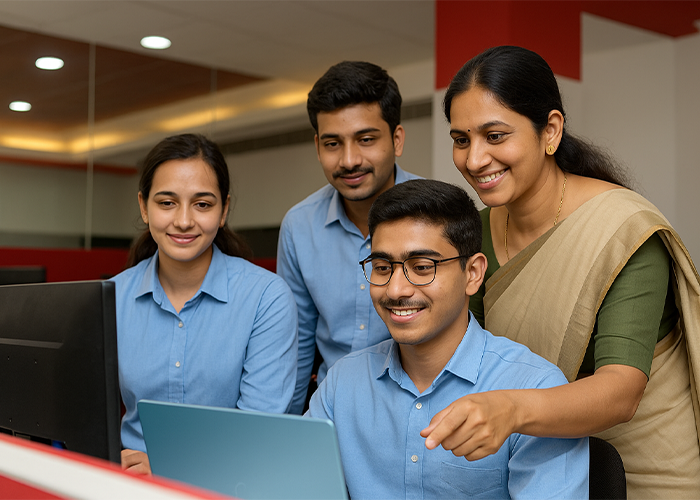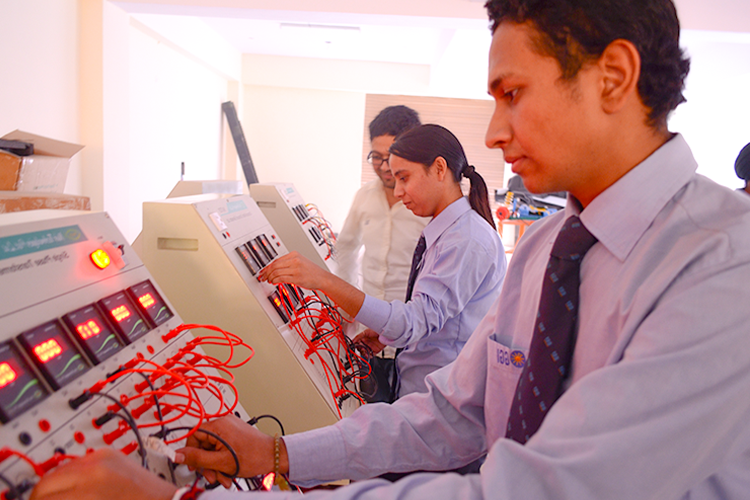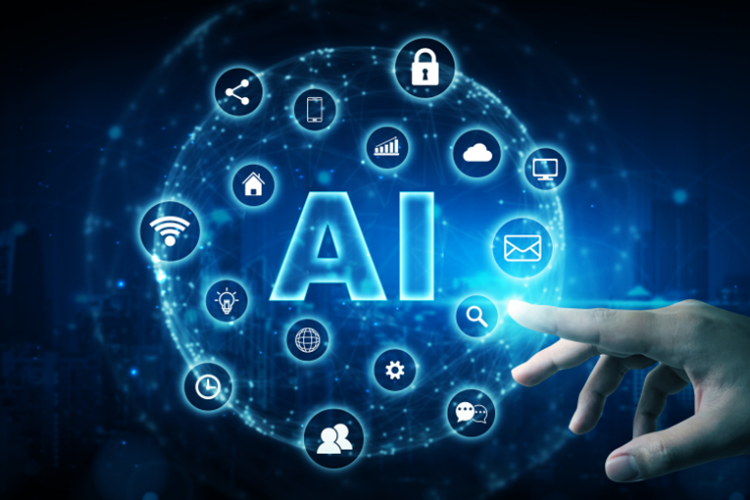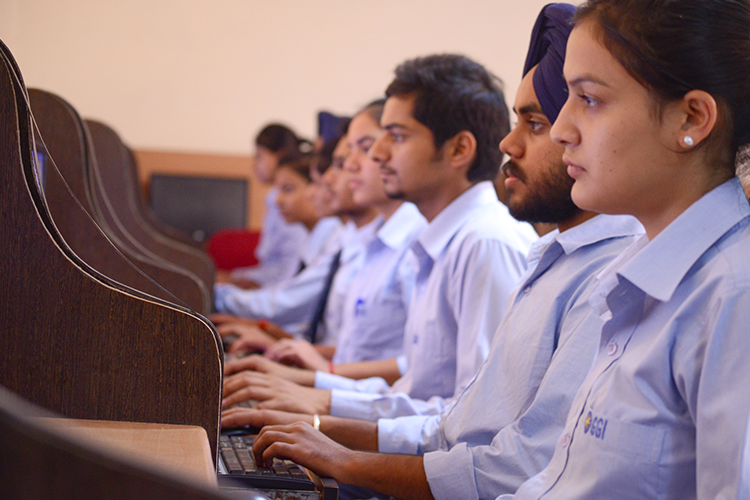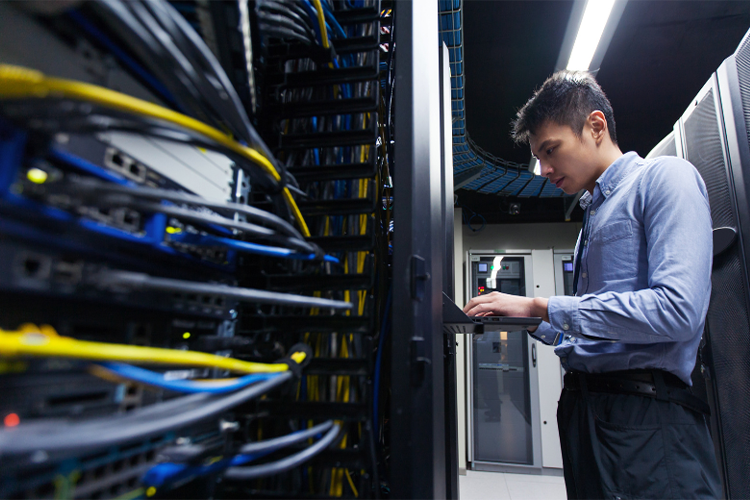Course Structure
The B.Tech Computer Science and Engineering (AI & ML) program at Gulzar Group of Institutions offers a comprehensive curriculum spanning eight semesters.
Engineering Mathematics is a foundational course that provides students with essential mathematical concepts and techniques relevant to engineering applications. Topics covered include calculus, differential equations, linear algebra, and more.
Provides foundational knowledge in programming, algorithms, data structures, computer architecture, and software engineering, preparing students for advanced studies and professional careers in computer science and engineering.
Introduces the principles of object-oriented programming, including classes, objects, inheritance, polymorphism, and encapsulation, enabling students to design and develop modular, reusable, and maintainable software.
Electrodynamics and Optics covers electromagnetism principles, Maxwell’s equations, electromagnetic waves, and optics phenomena like reflection, refraction, and diffraction, crucial for understanding light and electromagnetic wave behaviour in engineering and physics.
Optimization Techniques encompasses methods to maximise or minimise functions under constraints. It involves algorithms like gradient descent, linear programming, and evolutionary strategies applied in engineering, economics, and operations research for efficient problem-solving.
Data Structures refers to the organisation, management, and storage of data for efficient access and modification. It includes arrays, linked lists, stacks, queues, trees, graphs, and hash tables, crucial for designing efficient algorithms and software applications.
Digital Logic Design focuses on designing and implementing digital circuits using logic gates, covering Boolean algebra, combinational and sequential logic, flip-flops, registers, and memory units for digital system development.
Discrete Structures deals with mathematical structures that are fundamentally discrete rather than continuous. Topics include set theory, logic, relations, functions, graphs, and combinatorics, essential for algorithm development and computer science applications.
Fundamentals of Electronics introduces basic concepts and components in electronic circuits, covering semiconductors, diodes, transistors, amplifiers, oscillators, and digital circuits essential for applications in communication and control systems.
Dive into the fundamentals of digital logic circuits, covering topics like Boolean algebra, combinational and sequential circuits, and microprocessor basics, crucial for understanding modern electronic systems.
Explore efficient data organisation, manipulation, and retrieval through various structures like arrays, linked lists, and trees. Learn algorithmic techniques for solving computational problems with optimal time and space complexity.
Understand the principles of object-oriented design, including encapsulation, inheritance, and polymorphism. Gain hands-on experience in applying these concepts to create modular, reusable, and maintainable software solutions.
Study probability theory and statistical methods essential for data analysis. Topics include random variables, probability distributions, hypothesis testing, and regression, forming the mathematical foundation for engineering and data science.
Explore the intersection of technology and society. This course delves into the philosophical underpinnings of societal development, offering critical insights into the ethical implications of engineering practices.
Apply digital electronics theory in a practical setting. Design and test digital circuits, implement logic gates, and develop hands-on skills with hardware tools for real-world problem-solving in electronics.
Implement and test various data structures like stacks, queues, and graphs. Gain practical experience in writing algorithms to solve computational problems efficiently, reinforcing concepts learned in the theoretical course.
Develop software applications using object-oriented programming languages. This lab emphasises writing clean, modular code, and applying concepts like inheritance and polymorphism in real-world scenarios.
Gain practical skills in essential IT tools and technologies. The workshop includes hands-on training in areas such as software installation, basic networking, and troubleshooting, preparing students for technical tasks.
Participate in industry-based training during the summer break. This program provides practical exposure to real-world engineering projects, allowing students to apply their academic knowledge in professional environments.
Study mathematical structures essential for computer science, including logic, set theory, graph theory, and combinatorics. This course provides the foundation for algorithm design, cryptography, and computer networking.
Learn the inner workings of computer systems, covering CPU architecture, memory hierarchy, and instruction sets. Understand how hardware components interact to execute programs efficiently.
Explore the core concepts of operating systems, including process management, memory allocation, file systems, and security. Gain insights into how OSs manage resources and provide an interface between hardware and applications.
Delve into the design and efficiency of algorithms. Study techniques such as dynamic programming, greedy algorithms, and graph algorithms, focusing on time-space trade-offs and optimization strategies.
Engage in discussions on ethics, human values, and the role of individuals in society. This course encourages students to reflect on their responsibilities as engineers and citizens.
Learn about environmental issues and sustainability. This course covers topics such as biodiversity, pollution, and natural resource management, emphasising the importance of ecological balance in engineering practices.
Apply theoretical knowledge in practical experiments. This lab focuses on simulating computer architecture concepts, testing CPU designs, and exploring the interaction between hardware components.
Gain hands-on experience with operating system concepts. This lab involves tasks like process scheduling, memory management simulations, and file system implementation, reinforcing the theoretical principles learned in class.
Implement and analyse various algorithms studied in the course. This lab focuses on practical problem-solving, optimising algorithmic efficiency, and understanding the impact of different approaches on computational performance.
Master statistical methods and data analysis using R programming. This course covers hypothesis testing, regression models, and data visualisation, empowering students to analyse complex datasets effectively.
Learn the principles of database design, implementation, and management. This course includes relational models, SQL, indexing, and transactions, providing a solid foundation for building and maintaining databases.
Explore the theoretical foundations of computer science, focusing on automata, formal languages, and computational theory. This course is essential for understanding the limits of what can be computed.
Develop proficiency in Python programming, covering basic to advanced concepts like data structures, object-oriented programming, and libraries. Python’s versatility makes it ideal for various applications, from web development to data science.
Dive into the fundamentals of AI, including machine learning, neural networks, and natural language processing. This course emphasises algorithmic approaches to creating intelligent systems that mimic human decision-making.
Choose a specialised course that aligns with your interests and career goals. Elective topics may vary, offering focused knowledge in areas such as advanced algorithms, cybersecurity, or big data analytics.
Understand the Indian Constitution’s framework, principles, and rights. This course also explores India’s rich traditional knowledge, emphasising the importance of cultural heritage and ethical governance.
Apply statistical concepts in real-world scenarios using R. This lab involves data analysis tasks, from cleaning and visualisation to implementing statistical models, reinforcing theoretical knowledge through hands-on experience.
Gain practical experience in database management by designing, querying, and optimising databases. This lab complements the DBMS course, focusing on SQL, normalisation, and transaction management.
Strengthen your Python coding skills with practical exercises. This lab covers algorithm implementation, data manipulation, and using Python libraries, enhancing your ability to solve real-world problems programmatically.
Implement AI algorithms and models through hands-on projects. This lab covers machine learning, neural networks, and AI applications, providing practical experience in building intelligent systems.
Apply the knowledge from your elective course in a lab setting. This lab offers focused, hands-on experience related to the elective topic you’ve chosen, deepening your understanding of specialised areas.
Participate in an industry-based training program, gaining real-world experience in your field of study. This training bridges academic learning with practical skills, preparing you for professional roles.
Understand the fundamentals of networking, including protocols, topologies, and data communication. This course covers the architecture and operation of networks, preparing students for careers in IT and cybersecurity.
Learn the principles of machine learning, including algorithms for classification, regression, and clustering. This course emphasises hands-on experience with popular tools and techniques for developing intelligent systems.
Choose a course that enhances your expertise in a specific area, such as advanced data science, IoT, or cloud computing. Elective-II allows for further specialisation and deepening of knowledge.
Select a specialised course that aligns with your career aspirations. Topics may include emerging technologies, software development, or data analytics, providing advanced insights into your chosen field.
Explore interdisciplinary topics through Open Elective-I, which offers courses outside your primary field of study. This elective broadens your academic experience and enhances your skill set.
Engage in a significant research or development project, applying theoretical knowledge to solve practical problems. Project-1 is an opportunity to innovate, demonstrate skills, and contribute to real-world applications.
Gain hands-on experience in network setup, configuration, and troubleshooting. This lab complements the Computer Networks course, allowing students to apply theoretical concepts to real-world networking challenges.
Implement machine learning models and algorithms in a lab environment. This course provides practical experience in developing, training, and evaluating machine learning solutions using popular programming languages and tools.
Apply the concepts learned in your Elective-II course through practical exercises and projects. This lab reinforces the specialised knowledge gained and provides hands-on experience in the chosen subject area.
Engage in advanced practical work related to your Elective-III course. This lab allows for in-depth exploration and application of concepts, preparing students for specialised roles in the industry.
Explore the structure and functionality of compilers, focusing on lexical analysis, parsing, and code generation. This course provides a deep understanding of how programming languages are translated into executable code.
Study the principles of image processing and pattern recognition. Computer Vision equips students with the skills to develop systems that interpret visual data, with applications in AI, robotics, and more.
Broaden your knowledge by selecting a course outside your core discipline. Open Elective-II allows you to explore interdisciplinary subjects, fostering a more comprehensive educational experience.
Specialise in advanced topics such as cybersecurity, big data, or blockchain. Elective-IV provides an opportunity to further deepen your expertise in an area of interest aligned with industry demands.
Focus on cutting-edge technologies or niche areas of your choice. Elective-V enables you to gain specialised knowledge that enhances your professional development and prepares you for targeted roles.
Work on an in-depth research or development project, applying your accumulated knowledge to address complex real-world challenges. Project-II encourages creativity, innovation, and the development of practical solutions.
Gain practical experience in the specialised field of your Elective-IV course. This lab focuses on applying theoretical knowledge to real-world applications, ensuring skill development in emerging technologies.
Apply the advanced concepts learned in Elective-V through hands-on projects and exercises. This lab helps in refining technical expertise and preparing students for specialised roles in their chosen area of study.
Engage in practical, hands-on experience through industrial exposure or internship programs during the semester. This training allows students to apply academic concepts in real-world environments, enhancing their technical and professional skills.
Engage in practical, hands-on experience through industrial exposure or internship programs during the semester. This training allows students to apply academic concepts in real-world environments, enhancing their technical and professional skills.




























